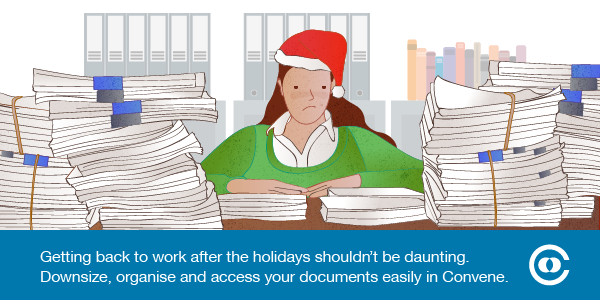We all have personal goals and resolutions for the new year, but how about a few resolutions to help us in the digital workplace?
- Have a secure password, and change it least twice a year.
There is a whole branch of study dedicated to passwords and that is Cryptography. You may think it’s just for top secret military code, but it's applicable to every one of us on a small scale as well.
A secure password is one that a hacker cannot guess by doing a Google search on you. For example, if you post pictures of your cat or always review the latest Elton John concert, MrPaws2011 and EJyellowbrickroad1 are not good options.
Create a password that you can remember but is hard for people who don’t know you personally to guess. For example, you can turn the phrase ‘My best friend at primary school was John Doe, we were 8’ to Mbf@pswJDww8. According to how secure is my password, it would take 34 thousand years for a computer to crack.
- Share or like your company’s social updates and if they are sub-par, help them out.
Employee advocacy is the new trend of the digital workplace. Think about it. You have a few friends on Facebook, some followers on twitter and perhaps a whole bunch of connections on LinkedIn. That is a rich network of potential clients for your company, who right now are blissfully unaware of what your company does and perhaps what you do as well.
If the content is not something that you want to share, this could be a problem with your company’s content strategy.
Read about how some large cooperation’s launched employee advocacy programs here.
- Back up your data. Regularly.
Data does not exist unless it is in two places. What happens to all your files if you drop your laptop? Keep an encrypted USB drive with your important files if you don't have cloud storage.
However, not all cloud storage security is made equal and not all apps cater for offline work. For example, at Convene our encryption is a far greater than most online banking standards across the globe and our app is built for both online and offline work.
- Be open to trying new digital solutions.
As human beings, we are comfortable doing things the way we have done them from the time we started work. We tend to forget that we once found the process we are now so very used to, difficult. So why do we forget? Because humans are adaptable. This is why we are the dominant species on the planet.
Try a new scheduling solution. You might be surprised by how quickly you pick it up. And if it doesn’t work for you, now you know what you are looking for.
- Stop apologising for learning and trying out these new solutions.
Learning new programs, apps or technology can be a slow process. However, if you are making an effort you should not apologise for it.
Asking for help is perfectly fine too.
If you still find it intimidating or fear a smug remark from us digital natives, rest assured that even we will struggle to keep up with technology 20 years from now.
- Meet with purpose.
This gentleman here, has the right idea and points to some very obvious truths that most of us ignore.
"I will try hard not to invite anyone to a work meeting, and not to accept being invited to any work meeting, without complying with the following 5 conditions:1. Reason: it's almost incredible, but the truth is that we all have been involved some time in "surprise" meetings with a generalistic subject and unclear motivations. If the subject line of the email is not enough, some lines can be written in the invite body, or in a previous email alerting of the imminent arrival of the invite.
2. Agenda: sent in advance with clear indications about what to share or discuss, and who to lead each item.
3. Documentation: any document to be discussed during the meeting should be sent in advance with a reasonable period to be read by everyone, so the meeting can be more efficient and dedicated to discuss everyone's comments on the topic, and not to show the topic itself, and expect all the attendees to come to conclusions "live".
4. Duration: max 30 minutes if the meeting implies only same office colleagues, and 60 minutes if someone comes to the office specifically for it. The lenght of the meeting rarely is directly proportional to the importance of the subject.
5. Availability: no meeting should be accepted when it is programmed on top of a previously programmed one. This is unrespectful for everyone and should be permanently avoided."
Perhaps you are looking to the future when it comes to your workplace. Why not read our series on the mobile work place?









